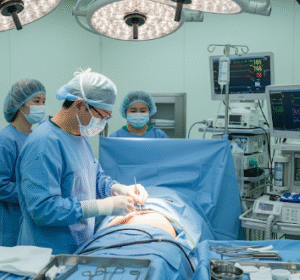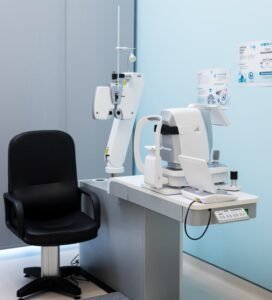What it is
Fertility preservation counseling is a medical and supportive service where women, men, or couples receive expert guidance about options to protect their ability to have children in the future.
✔️ Purpose: To educate patients about methods like egg freezing, sperm banking, embryo freezing, and ovarian tissue preservation.
✔️ Scope: Counseling addresses medical, emotional, financial, and ethical aspects of preserving fertility.
✔️ Availability in Korea: Provided at fertility centers, women’s health hospitals, and university hospitals, known for advanced reproductive technologies and holistic care.
➡️ It is especially important for people facing cancer treatment, career planning, or medical conditions that may impair fertility.
Why it’s done
Fertility preservation counseling is essential because it:
🔹 Provides informed choices about future family planning.
🔹 Prepares patients facing medical treatments (like chemotherapy or radiation) that may damage fertility.
🔹 Helps women delay childbearing due to education, career, or personal reasons.
🔹 Supports couples undergoing IVF who want to store extra embryos.
🔹 Empowers patients emotionally, reducing fear and uncertainty.
💡 Highlight: Counseling is the first step in making personalized and empowered decisions about reproductive health.
Alternatives
If formal fertility preservation counseling is not sought, alternatives include:
➡️ General gynecology or urology consultation – though less specialized.
➡️ Self-research online – but often confusing or inaccurate.
➡️ Relying on natural conception later – without preservation, age-related decline remains a major risk.
➡️ Adoption or donor gametes – future family-building options, though not preventive.
⚠️ Note: Alternatives may provide basic guidance, but comprehensive counseling in Korea ensures evidence-based, personalized, and forward-looking fertility care.
Preparation
Before attending fertility preservation counseling in Korea, preparation usually includes:
✔️ Medical history collection – reproductive health, past pregnancies, surgeries, chronic illnesses.
✔️ Fertility evaluation tests – ovarian reserve (AMH, FSH, ultrasound), semen analysis, and hormonal profiles.
✔️ Future goals discussion – whether patient wants to delay pregnancy, prepare for cancer treatment, or plan IVF.
✔️ Emotional readiness – acknowledging fears, hopes, and expectations.
✔️ Questions for the doctor – about success rates, risks, and costs.
💡 Tip: Korean clinics often encourage couples or family members to join counseling for emotional and decision-making support.
How it’s done
Fertility preservation counseling in Korea is a step-by-step process:
- Initial consultation
- Review of health, lifestyle, and family-building goals.
- Discussion of fertility risks (age, cancer therapy, ovarian decline).
- Education about preservation options
- Egg freezing (oocyte cryopreservation).
- Sperm freezing.
- Embryo freezing (fertilized eggs).
- Ovarian tissue freezing (experimental, for cancer patients).
- Medical evaluation
- Fertility tests and imaging to check reproductive health.
- Screening for infections or genetic conditions if embryos will be created.
- Planning the preservation strategy
- Personalized plan based on health, age, and future goals.
- Financial and ethical considerations discussed.
- Emotional and psychological support
- Counseling about anxiety, uncertainty, or ethical concerns.
- Support for couples deciding on embryo storage.
💡 Highlight: Korean clinics emphasize education, personalization, and compassion, ensuring patients leave with a clear plan.
Recovery
Since counseling itself is non-invasive, there is no physical recovery. However, patients often experience:
✔️ Emotional relief after gaining clarity and a plan.
✔️ Better preparedness before starting medical procedures.
✔️ Improved confidence in future family-building decisions.
When to revisit a doctor:
➡️ Before starting cancer therapy, to act quickly on fertility options.
➡️ When considering delaying pregnancy after age 35.
➡️ If medical conditions like PCOS or endometriosis progress.
➡️ For follow-up counseling before thawing frozen eggs, sperm, or embryos.
💡 Important: Fertility preservation is time-sensitive—acting early improves success rates.
Treatment option in Korea
Korea is globally recognized for advanced fertility preservation care:
⭐ Cutting-edge IVF and cryopreservation labs with vitrification technology.
⭐ Specialized programs for cancer patients, ensuring urgent preservation before treatment.
⭐ Affordable preservation packages compared to many Western countries.
⭐ Integration of counseling with emotional support and traditional Korean medicine if desired.
⭐ Multilingual fertility clinics for international patients.
💡 Highlight: Korea offers world-class medical expertise, advanced technology, and holistic counseling, making it one of the best places for fertility preservation.
Key Highlights
✔️ Fertility preservation counseling provides education and guidance for future family planning.
✔️ Options include egg, sperm, embryo, and ovarian tissue freezing.
✔️ Preparation includes fertility testing, goal setting, and emotional readiness.
✔️ No physical recovery needed, but emotional reassurance is vital.
✔️ Korean clinics combine advanced technology with compassionate counseling.












